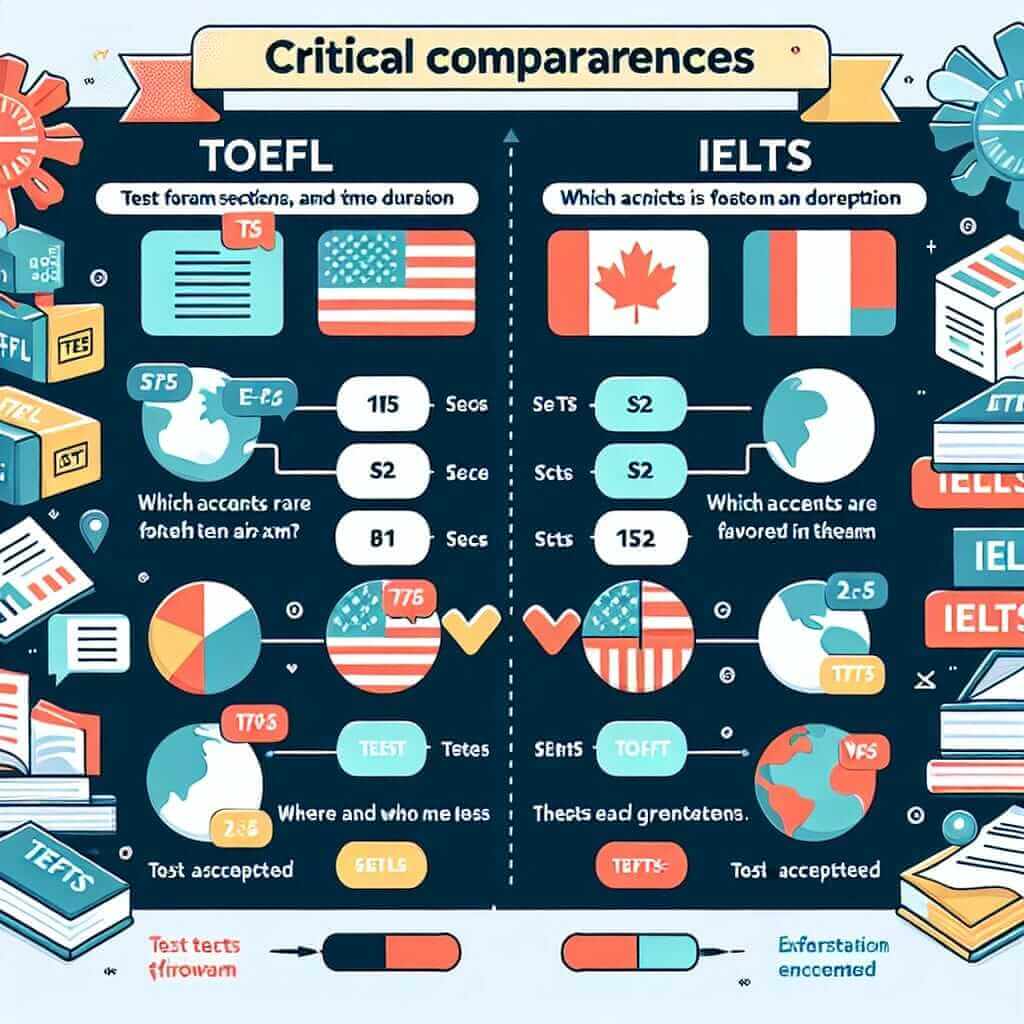A common question students preparing for university applications often ask is: TOEFL or IELTS – which test should I take? Both are internationally recognized English proficiency tests, but choosing the right one can significantly impact your application journey.
As an IELTS instructor with over 20 years of experience, I’m here to provide clarity on the TOEFL vs. IELTS dilemma. This article will equip you with the knowledge to make an informed decision.
Understanding the Tests: TOEFL vs. IELTS
TOEFL (Test of English as a Foreign Language)
- Administered by: Educational Testing Service (ETS)
- Format: Entirely computer-based
- Focus: North American English
- Acceptance: Widely recognized by over 11,000 institutions, primarily in the US and Canada.
IELTS (International English Language Testing System)
- Administered by: British Council, IDP Education, and Cambridge Assessment English.
- Format: Available in both paper-based and computer-delivered formats.
- Focus: Tests English proficiency across various accents, including British, American, and Australian English.
- Acceptance: Accepted by over 10,000 institutions globally, particularly popular in the UK, Australia, and New Zealand.
Key Differences: Navigating Your Options
While both tests evaluate English language proficiency across four sections: Reading, Listening, Speaking, and Writing, key differences can impact your choice:
1. Format and Delivery:
- TOEFL: Exclusively computer-based, demanding strong typing and computer skills.
- IELTS: Offers flexibility with paper-based and computer-delivered options, catering to diverse preferences.
2. Speaking Test:
- TOEFL: Involves speaking into a microphone, with responses recorded and evaluated later.
- IELTS: Features a face-to-face interview with a certified examiner, allowing for more natural interaction and potential for clarification.
3. English Accent and Content:
- TOEFL: Predominantly focuses on North American English.
- IELTS: Encompasses a wider range of accents, including British, American, and Australian English, reflecting diverse English-speaking environments.

Choosing the Right Test: Factors to Consider
1. University Requirements:
Your priority is to check the specific English proficiency test requirements of the universities you are applying to.
2. Personal Strengths:
- Strong typing skills and comfort with technology: TOEFL might be a suitable choice.
- Preference for face-to-face interaction and a broader range of accents: IELTS could be a better fit.
3. Test Availability and Location:
Consider the accessibility and convenience of test centers offering your preferred test format.
Preparation is Key: Tips for Success
Regardless of the test you choose, thorough preparation is crucial:
- Familiarize Yourself with the Test Format: Understand the structure, question types, and time limits for each section.
- Practice Regularly: Utilize practice tests and sample questions to hone your skills and build stamina.
- Seek Expert Guidance: Consider enrolling in a preparation course or working with an experienced tutor to receive personalized feedback and support.
Conclusion
Selecting between TOEFL and IELTS is a personal decision. By carefully weighing the factors outlined above and investing dedicated effort in preparation, you can confidently approach your chosen test and increase your chances of achieving your desired scores.